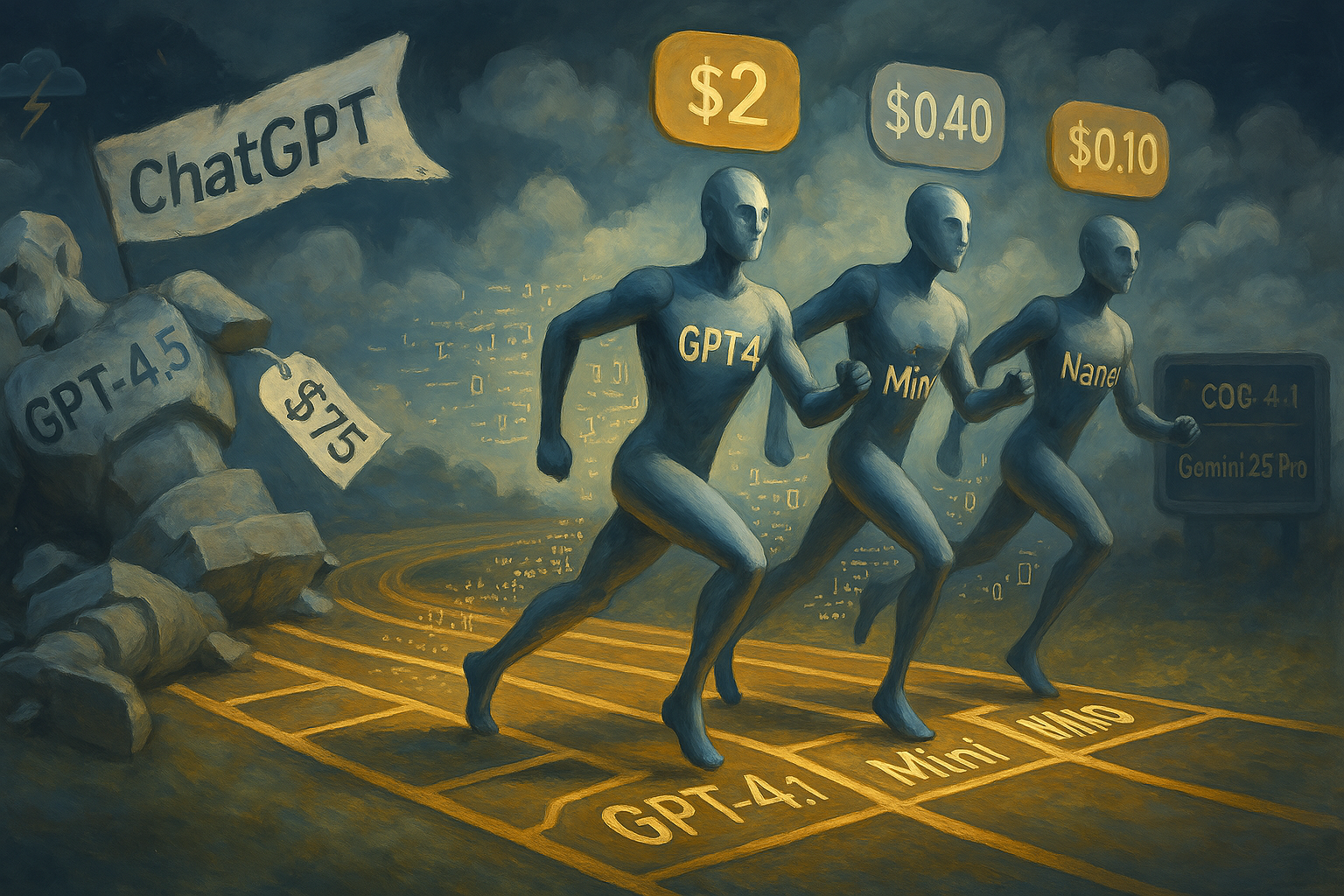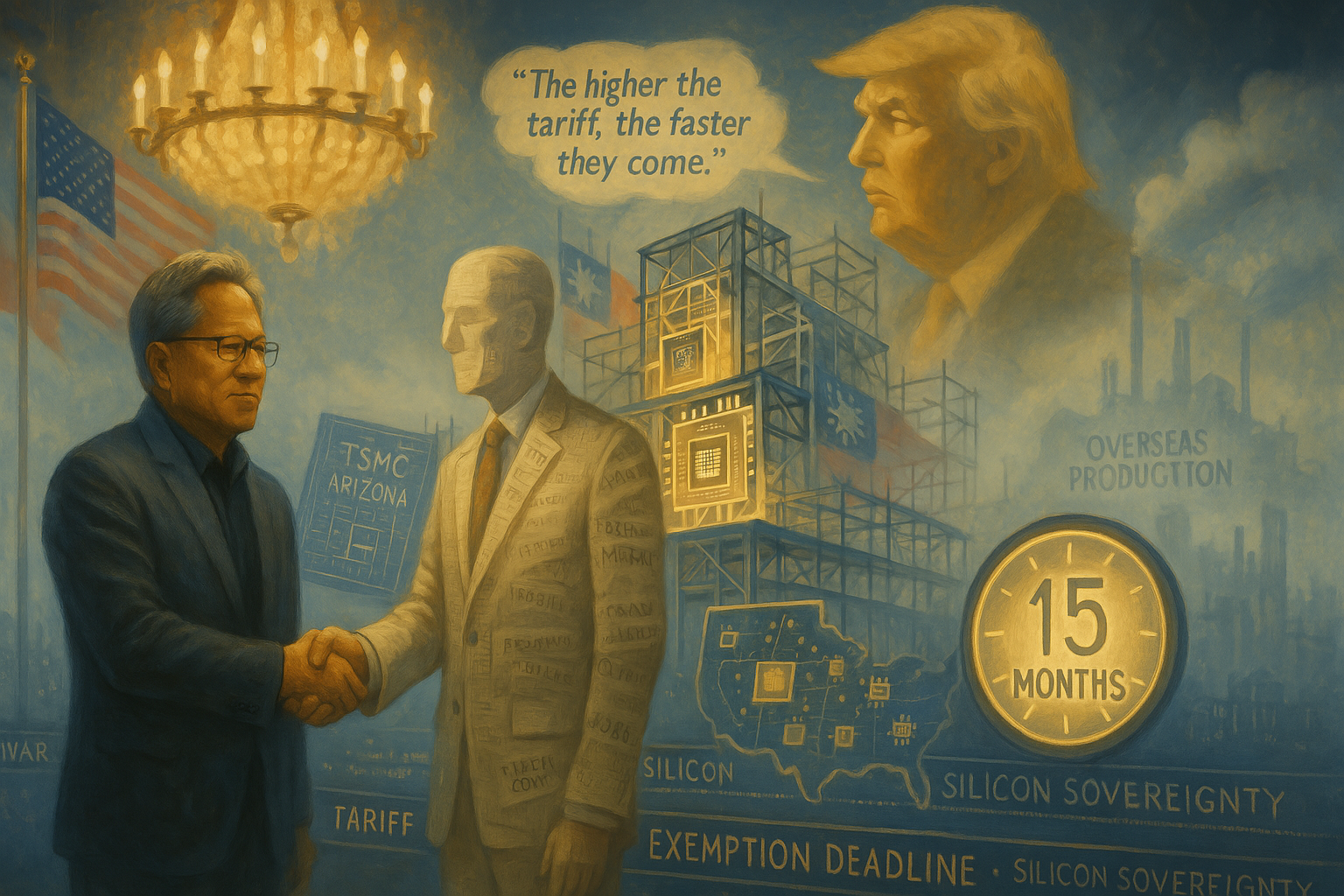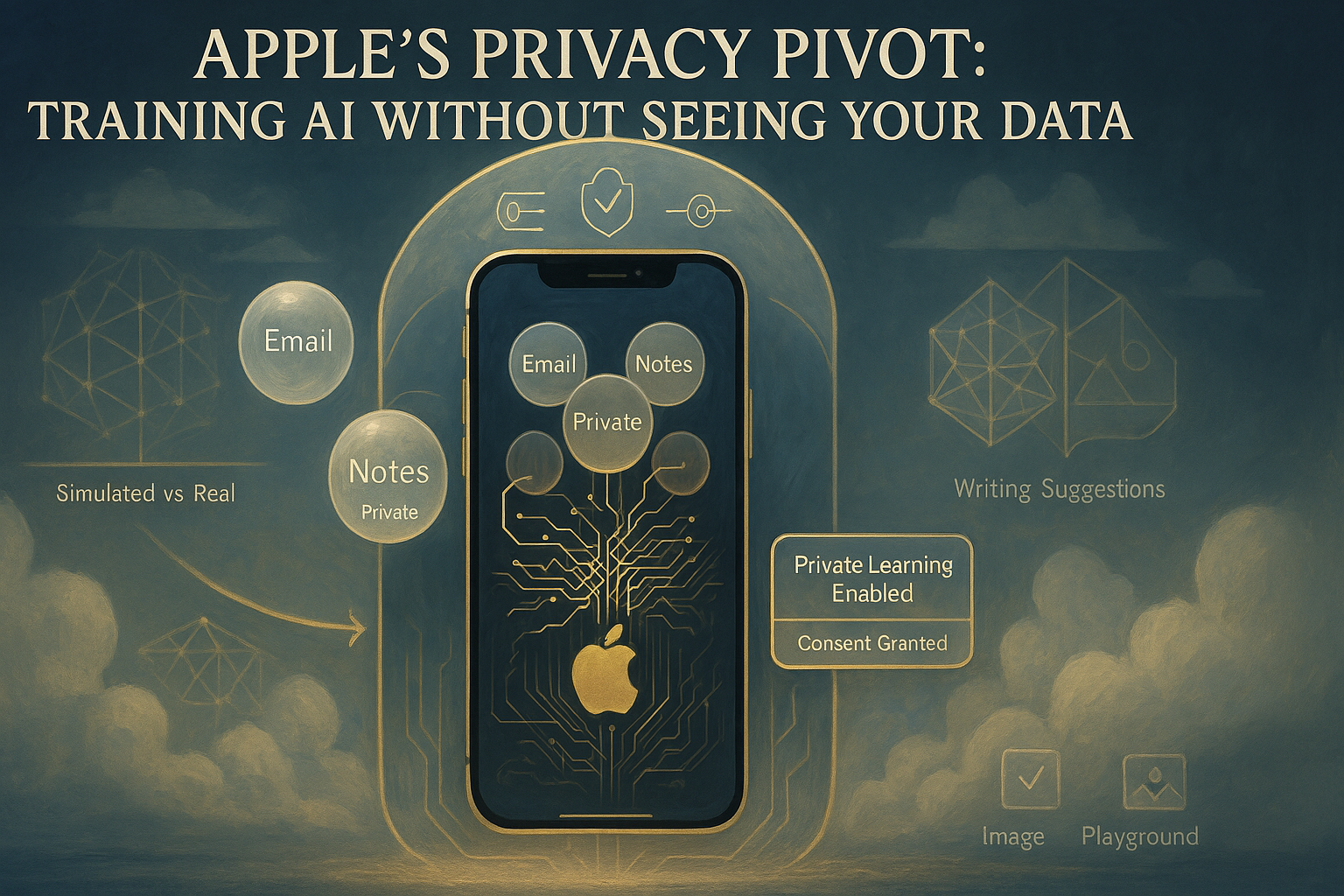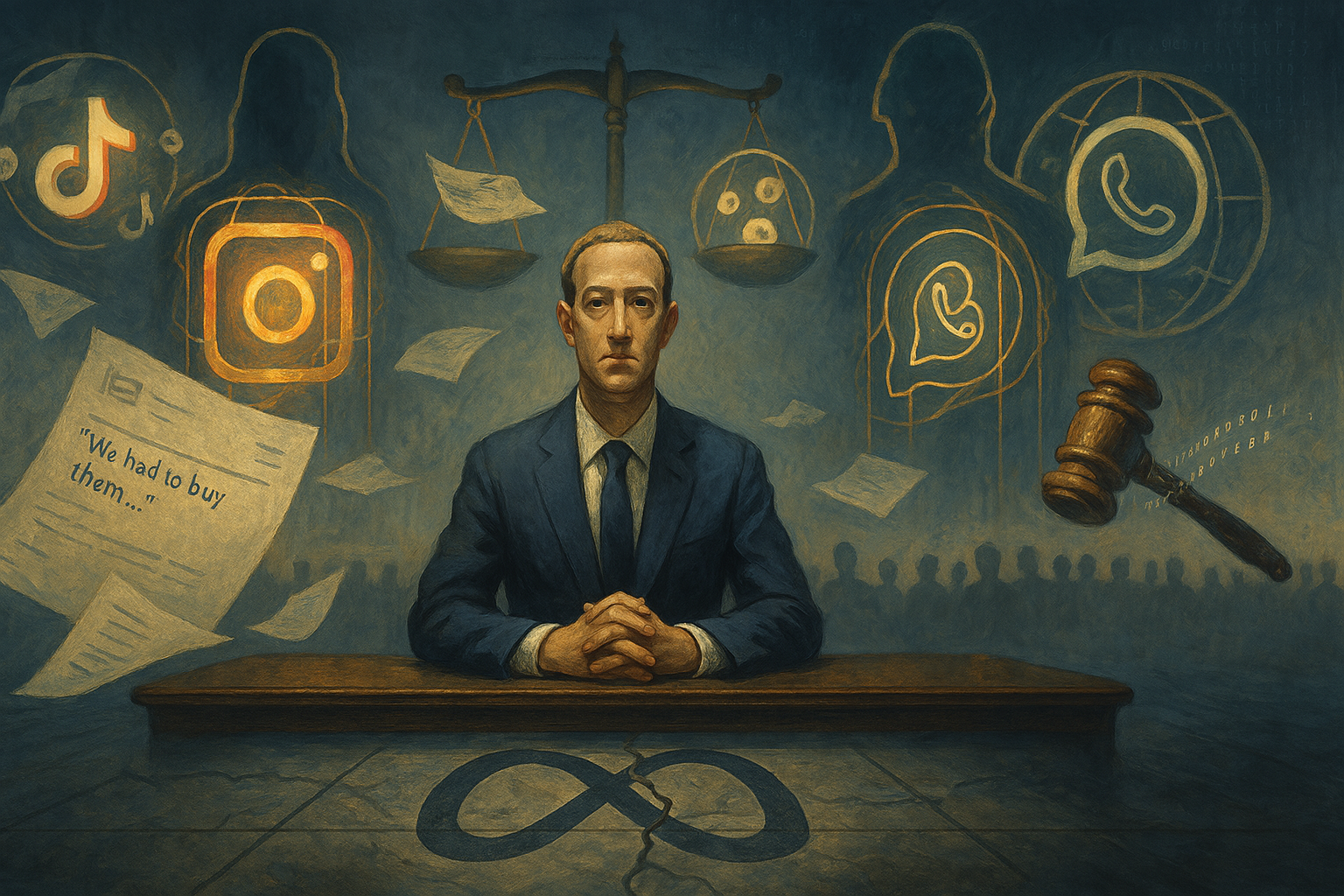OpenAI Plans Social Network to Rival X
OpenAI is developing a social network that could shake up the AI landscape. The project centers on ChatGPT's image generation and includes a social feed, according to sources close to the matter.

Good Morning from San Francisco,
OpenAI just fired another shot in the AI race 🎯. Their new GPT-4.1 devours text like a bookworm on steroids - imagine processing "War and Peace" in one gulp.
The price tag? A bargain 💰. You'll pay $2 for feeding it text and $8 for what it spits out. Want it cheaper? Mini and Nano versions cost peanuts in comparison.
Meanwhile, Nvidia bows to Trump's tariff pressure 🏗️. They'll build AI chips in Texas, partnering with Taiwan's finest. Jensen Huang even showed up at Mar-a-Lago for dinner. Guess AI chips weren't the only thing on the menu.
Stay curious,
Marcus Schuler

OpenAI just rolled out GPT-4.1, a new AI model that handles text inputs as long as "War and Peace." The launch includes three variants: GPT-4.1, Mini, and Nano.
The models boast a massive 1-million-token context window. In plain English, they can process about 750,000 words at once. OpenAI claims these models shine at coding tasks and following instructions.
The pricing looks competitive. GPT-4.1 costs $2 per million input tokens and $8 per million output tokens. The Mini version runs at 20% of that price, while Nano costs just a tenth.
The timing is interesting. OpenAI plans to retire GPT-4.5 from its API by July 14th. The company says GPT-4.1 matches or beats its larger sibling's performance at a fraction of the cost.
But there's a catch. The model gets less reliable with longer inputs. Its accuracy drops from 84% with 8,000 tokens to 50% with 1 million tokens.
Why this matters:
Read on, my dear:

Nvidia will build AI chips in America, announcing its plans just one day after Trump threatened new tariffs. The company will partner with Taiwanese manufacturers in Texas and use TSMC's Arizona plant.
The timing looks strategic. Trump's team released tariff exemptions for electronics late Friday, then warned they were temporary. Commerce Secretary Lutnick said sector-specific tariffs on tech products and chips would follow.
Behind the scenes, CEOs court Trump directly. Nvidia's Jensen Huang dined at Mar-a-Lago on April 4. Apple's Tim Cook calls Trump to negotiate, a tactic Trump mentioned Monday.
Nvidia aims to start Texas production within 15 months. The plants could create thousands of jobs and drive major economic growth. But analysts doubt companies can quickly rebuild full-scale U.S. manufacturing.
Why this matters:
Read on, my dear:

Prompt:
a human full body made of glass filled with floating goldfish, visual metaphor for thoughts swimming freely, symbolic surrealism, ultra-detailed surreal portrait, dreamy backlighting, shot on Canon EOS R5

Apple just revealed how it improves its AI features without compromising user privacy. The company uses synthetic data and differential privacy to train its models, steering clear of real user content.
The approach works in two steps. First, Apple creates fake but realistic data using large language models. Then, it sends this synthetic data to user devices to find which fake examples best match real usage patterns.
For features like Genmoji, Apple only collects aggregated trends from opted-in devices. The system needs hundreds of users to use the same prompt before Apple can detect the pattern. No individual prompts or user data ever leave devices.
The method will soon expand beyond Genmoji to Image Playground and Writing Tools. Apple's privacy-first stance means trading some potential performance gains for user protection.
Why this matters:
Read on, my dear:
The EU claims the US hasn't spelled out what it wants to lift trade tariffs, despite a two-hour meeting between top negotiators that went nowhere. EU trade commissioner Šefčovič dangled the prospect of dropping all industrial tariffs, but his American counterpart Howard Lutnick apparently brought more silence than solutions to the table.
China's new export controls on rare earth elements threaten US military readiness, and the US has no quick fix in sight. Even with $439 million committed to building domestic supply chains since 2020, the US lacks the capability to process heavy rare earths needed for fighter jets, submarines, and missile systems - a gap that won't close anytime soon.
TSMC and ASML stocks have plunged to multi-year lows as new tariffs and cooling AI demand rattle investors. Both companies have lost over 10% of their value this year, with TSMC dropping 20% despite still dominating the advanced chip-making market.
Public backing for online content controls has dropped sharply since 2023. Only half of Americans now want government limits on false information, down from 55%. Tech company oversight faces similar skepticism, with support falling from 65% to 60%. The shift cuts across party lines. Democratic support for government restrictions fell from 70% to 58%, while Republican support held at 43%. This narrows a once-wide partisan gap.
A new AI system analyzed 20 million Google Street View photos to track how cities evolve. Visual Chronicles spotted 1,500 new solar panels in San Francisco, tracked the rise of outdoor dining, and even caught city workers painting freeway supports blue.
AMD got its first 2nm test chip working, jumping ahead in the race for smaller, faster processors. The chip will power future EPYC servers, while rival Intel delays its next-gen release.

Mark Zuckerberg defended Meta's acquisitions in court Monday. The FTC wants to break up his social media empire by forcing Meta to sell Instagram and WhatsApp.
Prosecutors confronted Zuckerberg with his own words. In one email, he wrote Meta "had to" buy Instagram for $1 billion because it grew too fast. He later spent $19 billion on WhatsApp. The FTC says these deals killed competition.
Zuckerberg pushed back on the court's first day. He said Facebook has evolved beyond just connecting friends and family. Meta's lawyers argue TikTok and YouTube prove healthy competition exists.
Judge James Boasberg will decide the case. He's already skeptical of the FTC's arguments. Even if he rules against Meta, Trump could intervene - Zuckerberg recently met with him seeking a settlement.
Why this matters:
Read on, my dear:

Teal is the personal career growth platform founded in 2019 by Dave Fano to empower job seekers with the same level of tools companies use for hiring. From its Miami headquarters, the 12+ employee startup has grown into a comprehensive career management system used by over 650,000 professionals seeking strategic advantages in their job hunts. 😎
Teal sits at the intersection of AI-powered career tech and increasingly empowered job seekers. With fresh Series A funding, Teal plans to evolve from job search tool to comprehensive career companion, potentially expanding to international markets and B2B enterprise offerings. Its challenge: maintaining quality while scaling rapidly and fending off LinkedIn if it enhances its native resume tools. 🚀
Fuel your morning with AI insights. Lands in your inbox 6 a.m. PST daily. Grab it free now! 🚀